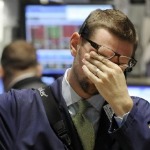Why Did Wall Street Get Off the Hook?
 Reading the financial crisis report, it's clear that the smartest guys in the room turned out to be the most ignorant. Yet, by and large, they haven't paid much of a price.
Reading the financial crisis report, it's clear that the smartest guys in the room turned out to be the most ignorant. Yet, by and large, they haven't paid much of a price.
Let’s face it: You won’t read every page of the Financial Crisis Inquiry Commission report. But FrumForum will, over the next days. So let’s proceed together, page by page, identifying the key points.
Click here to read the entire series.
When you think about the Crash of 1929, think about this. Suppose you were a prudent investor of the 1920s. Sometime about the summer of 1928, you recognized that valuations were going wild. You sold every holding, converted to cash, exited the market. Over the next 15 months, your friends mocked you for missing the best of the party. Then came October and you were vindicated. You watched as prices crashed and then crashed again. From a peak of 381.17 on September 3, 1929, the Dow Jones Industrial average tumbled to 198.60 on November 13.
So what would our prudent investor do? Return to the market of course. Stocks had lost half their value: time to buy!
And what would be the reward for his prudence? Over the ensuing three years, he would lose more than 75% of his wealth.
From the perspective of the next century, it's difficult to appreciate the slow-motion juggernaut destructiveness of the Great Depression. Events from 1930, 1931, 1932 look crowded together at an 80 year distance. But at the time, people kept hoping that the worst was over, that the corner had been turned, that the next flight of stairs would lead upward, not down.
Yet we in our time have re-experienced this tendency of the human mind to believe the best even as things are tumbling toward the worst: We lived it during the first phase of the housing collapse in the spring and summer of 2007. From page 234 of the FCIC report:
Although government officials knew about the deterioration in the subprime markets, they misjudged the risks posed to the financial system. In January 2007, SEC officials noted that investment banks had credit exposure to struggling subprime lenders but argued that “none of these exposures are material.” The Treasury and Fed insisted throughout the spring and early summer that the damage would be limited. “The impact on the broader economy and financial markets of the problems in the subprime market seems likely to be contained,” Fed Chairman Ben Bernanke testified before the Joint Economic Committee of Congress on March 28. That same day, Treasury Secretary Henry Paulson told a House Appropriations subcommittee: “From the standpoint of the overall economy, my bottom line is we’re watching it closely but it appears to be contained.”
Smart guys all - and one and all, they failed to perceive that a crash in one part of the housing market would lead to the greatest destruction of wealth since World War II.
They did not understand the internal wiring that linked together all the elements of the credit boom of 2002-2007 into the financial equivalent of a weapon of mass destruction. Bad enough that the regulators did not understand it. More shocking: the people who built the bomb did not know what they had done either. Yet those people had earned salaries in the tens of millions - sometimes more - from actions that had created the risks they did not recognize.
The smartest guys in the room turned out to be the most ignorant.
By and large, the former smartest guys have not paid much of a price for their ignorance. None of those who contributed to the financial crisis has been prosecuted nobody has even been much disgraced. Unlike the collapse of 1929-33, the crisis of 2007-2009 did not cause many Americans to rethink old ideas.
And yet the authors of the disaster have reacted with furious defensiveness against the accusations that nobody brought against them. It's strange. But it raises the question: if the financial sector feels so self-conscious that somebody could accuse them - how is it that nobody has accused them. Isn't a consciousness of guilt a pretty good indicator of the existence of guilt?
More to come...